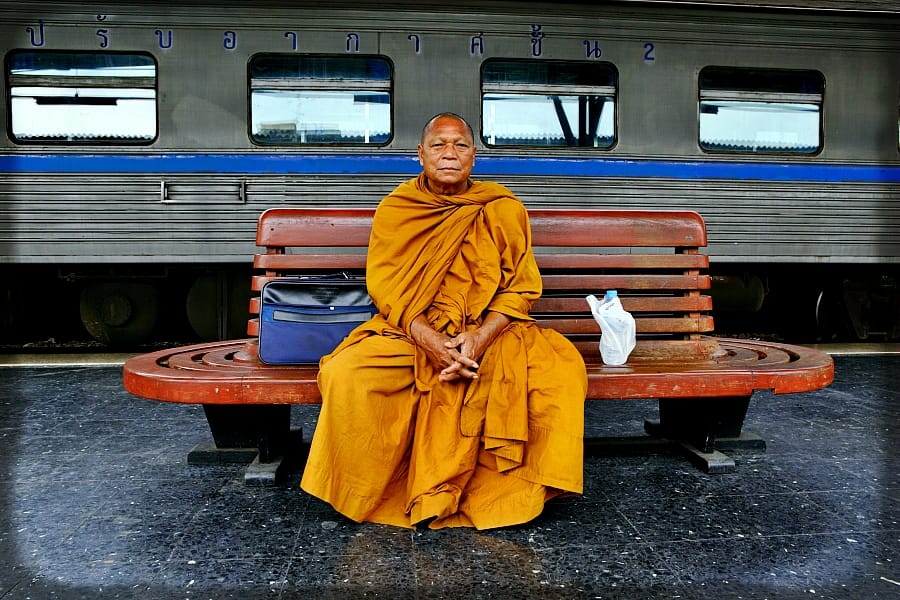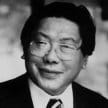“There is a natural healthiness and sense of goodness we can all experience personally,” says Chögyam Trungpa Rinpoche on the Shambhala teachings. “Then we will discover what kind of joy is needed to help the world. We find that the joy of warriorship is always needed.”
We are going to discuss the ground for building an enlightened society. No matter where we are in the world, there is a need for enlightened society, wherever natural disasters hit. In this case, “natural disaster” refers to aggression, passion, and ignorance. These kinds of natural disasters occur in the minds of people. They may be easy or difficult to deal with, but nonetheless they are workable.
If a building collapses, you spend thousands of dollars to fix it. If a hydroelectric dam breaks, it may cost millions of dollars to repair. In some sense, the disasters in the mind are cheaper to fix, but on the other hand the solution could be more demanding, because it requires personal attention and individual awareness. It is up to us to realize how and why and in which way we could bring about an enlightened society. Passion, aggression, and ignorance are regarded as problems or obstacles to this, but they are also part of the working basis.
While building enlightened society requires us to overcome passion, aggression, and ignorance, the means to do this also requires a realization of joy, that you are not in a dungeon or the black hole of Calcutta. You get so resentful when you feel that someone or something in your life has imprisoned you in that way. You can’t even hear or talk properly. When you talk, you stutter with anger. When you hear, you only hear the destructive side of the argument.
So there is need for a sense of humor. it is impossible to overcome passion, aggression, and ignorance with a long face. We have to cheer up. When you begin to see yourself fully and thoroughly, then you discover your sense of humor. It is not the same as telling bad jokes. humor here is natural joy, the joy of reality.
The Shambhala tradition is very closely connected with the principles and vision of Buddhism. At the same time, this approach provides us with a secular view of how we can actually commit ourselves to a world that is true and genuine and good for us. There is something about human nature that is good, excellent, and cheerful. We are not particularly talking on a religious level. We are just talking about being human beings and cheering ourselves up. If we smile genuinely each day, that is jolly good. Having smiled already, then we can help the rest of society, the rest of the world. Enlightened society has genuineness, gentleness, and honesty, and on the whole, it comes with tremendous joy. When you help the rest of the world, you don’t have to be solemn.
There is always something in the situation that can cheer you up, but you have to discover and understand it yourself. There is no point in me telling you how to cheer up. It is up to you to find the intrinsic cheerfulness that exists in you. You have to actually experience it. If somebody simply puts an idea in your head, it is not good enough. You can cheer yourself up much better than somebody talking you into something.
As you learn to cheer up, you will also see the problems in our society, but you can’t immediately criticize them or do anything about them right away. You have to develop yourself first. Then you can begin to work with others. In the Shambhala tradition, we don’t jump the gun, so to speak. If you are going into battle, you don’t put on your suit of armor hastily before you sit on the toilet. First you sit on the toilet and make sure your system’s clear. Then you put on the suit of armor. It could be a big problem if you do it the other way around.
So in order to help society, you need to work on yourself first. In the Shambhala tradition we talk about becoming a warrior. “Warrior” here is the English translation of the Tibetan word pawo. Pa means “brave.” when you add wo, it means “he or she who is brave.” It has nothing to do with warfare. If an infant is afraid to suck its mother’s nipple, you have to train the infant, so that the infant would not be afraid to nurse. That is the idea of the warrior’s bravery.
The basic definition of the Shambhala warrior is one who appreciates human goodness. Goodness here means simply being yourself. Out of being yourself a sense of upliftedness arises, rather than you becoming solemn. That upliftedness is a sense of basic human virtue. on that basis, you can train yourself to have a good sense of head and shoulders, or good posture, and good speech. Then a good way of working with others will come naturally.
The principle of virtue also includes a sense of decency. Decency does not just mean that Joe Schmidt is a decent chap because he pays his bills and never had a bad relationship with the neighbors. That might be part of it, but there is more to it than that. Even animals can do a decent job. When you give them a dish of food they eat; give them a dish of water and they drink. They are very loyal to their masters.
Here, decency goes beyond that level. It is embracing the joy of living, the joy of being alive. So when we talk about the bravery or fearlessness of the warrior, we are not simply talking about overcoming fear. Fearlessness here is delight, cheerfulness, and a sense of sparkling eyes and good head and shoulders.
Usually when we talk about joy it is connected with how wonderful things are, how pleasurable things are. But in the Shambhala teachings, there is a sense of joy even in difficult circumstances. You might have no hot water available and your house might not be insulated. Your children might be screaming and scheming, and you only have one outhouse. But at the same time, if you can raise your head and shoulders there is some sense of joy. It’s not any kind of cheap joy. It’s individual dignity.
Joy and unconditional healthiness arise from the basic virtue of being what we are, just like we are, right now, at this point. There is natural healthiness, a natural sense of goodness that we can experience personally. Then, from that beginning point, when we go out and relate with the greater realities, we will discover what kind of joy is needed to help the world. We find that the joy of warriorship is always needed.
For the warrior, it is joyful to be in such good health, joyful to keep such good posture, joyful to experience that you are alive, that you are here. You can appreciate the colors of the world and you can appreciate the temperature of the air. You can appreciate smells and you can appreciate sounds. There is a tremendous feeling of pleasure and appreciation.
but at the same time there is sadness. It is like the sound of a flute, which is so melodic and so beautiful that it ravishes your mind. It is almost like a mixed blessing, sweet and sour together. So joy brings a sense of sadness at the same time. Joy doesn’t stay by itself. If it does, there must be something wrong with it, something perverted about it.
Instead, when there is fundamental joy, fundamental pleasure, an appreciation of yourself and your world, then a notion of empty heart begins to develop. You think you might be falling in love, but you never know who you are falling in love with. You just fall in love. It is so pleasurable and so painful at once. You are almost falling in love with the universe, with the general situation. At that point, there is no reference point to anyone or anything. You can simply be a lover without loving anybody in particular. It is just being in love, just appreciating your world. You don’t have to crank anything up. The main point is developing some kind of appetite for the universe, that everything is workable and lovable.
At the same time, one has to view the world with critical intelligence. You begin to use your eyes, your ears, your nose, and your tongue—your sense perceptions—to relate with reality. For the first time you see such penetrating and extraordinary red, such cool and beautiful blue, such warm and delicate yellow, such refreshing, earthy, and wet green. We could include sound and smell and taste: they are all part of our sense of appreciation. How wonderful the world is! How beautiful the world is! How exotic and how fabulous the world is! You might take it for granted, but if you look again, you begin to discover the tremendous beauty and subtlety that exist in your sense perceptions.
When there is this sense of joy and well-being, there is also sadness. You wish that you could share your sense of well-being with other people. Our sadness and delight bring us to work with others. They begin to be included in our vision, in our experience. Other people have difficulties relating to the world, which may take the form of aggression, passion, or ignorance—the three natural disasters we discussed earlier. But just as we work with these things in ourselves, we begin to work with them in others. as long as people possess sense perceptions, sense organs, and sense consciousness, then there is a working basis. Being able to work with others, one is able to work with oneself at the same time.
One’s appreciation of the world never diminishes. Whenever there is doubt about that, that provides another step on your staircase. That means that you have to take another step to go beyond. So each time there is an obstacle, you go step by step. You walk or jump step by step until you see the Great Eastern Sun, the great sun of wakefulness and joy. This is the warrior’s path.
Adapted and edited by Carolyn Rose Gimian from a public talk given by Chögyam Trungpa Rinpoche in Chicago, September 1982, and a seminar in Boulder, Colorado, April 1983.

